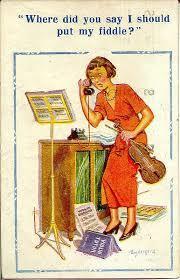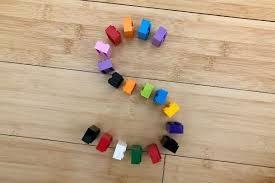Hector Scott shares some fun games and strategies to help motivate young students in their practice sessions

Discover more Featured Stories like this in The Strad Playing Hub
The initial stages of learning a violin are broken down to easy, manageable tasks but when this evolves and the pupil feels that the pursuit of their musical goals is getting difficult, we run into a reason for not pursuing our goal. That is when we need different tactics where we examine our values and exploring our life balance. For a young child, we are shaping the attributes of the person they might want to become in planning their time and attention.
Everybody loves classical music. They just don’t know about it yet - Benjamin Zander
It is important to understand that not wanting to practise the violin is not an indication that the pupil has fallen out of love with the instrument, but rather that either the child and parent don’t know how to prioritise its role within their lives properly, or that the conditions for its exploration have become destructive. The latter usually occurs in activities where expectations are high but the pupil’s control is low and can be identified as a lack of agency. ’I’m expected to do all this work and I’m trying but I have no control over the process which now feels overwhelming.’
The following games might be considered in giving the pupil agency over their learning and allowing the parent to help aid their child to accomplish the challenges they face, rather than becoming the person who creates an environment of high expectations which cannot be met. This idea of an agency in control is fundamentally linked to our mental wellbeing as well as creating a healthy living environment and it teaches the pupil to take responsibility over their internal feelings.
The major difference between the ‘best’ and the ‘average’ is that the ‘best’ get as much pleasure from practice as performance - Benjamin Zander
Using a pack of cards for the Card Game, the child randomly picks five from the pack. Place these on the stand face up and ask the child to choose the order they would like to work. Whatever number is on the card decides what the task is and how many times it needs to be achieved. Aces count as 1; if you get a joker, the child decides what they need to do, and if you get a Jack, Queen, or King the teacher or parent needs to accomplish a task (it could be listening to a particular recording). The child will never know that you are making up the tasks as you go along!
Creative Paperchains is inspired by Japanese paper cranes, the paper chains use different coloured paper sheets depicting various themes such as seasonal motives, famous violinists, works of art, pieces of music, cut into strips that are 3 cm wide and 15cm long. Each time a practice task is completed, the pupil makes a chain link. The chain might be attached to a music stand by a clip with the goal of the game being that over the week the pupil creates a paper chain that reaches the floor. If the pupil is young, you could make the paper chain reflect the height of the pupil themselves! The beauty of this game is that the pupil learns and sees the value of practising early in the week in preparation for a lesson. Once the chain is complete, it can be used as a personalising decoration in the teaching room that helps the pupil identify themselves in ‘their’ music room.
The Coin Game really tests concentration levels and should only be played when you know the child is ready to win and in a positive frame of mind. Place between three to six coins in a row in front of a stuffed animal and the same number in front of the child. Ask the child to complete a challenge such as play a ‘tricky bit’ four times perfectly in a row or play a phrase on an open string with perfect bow management. If they succeed then the stuffed toy gives them a coin, and if they don’t, then the coin goes from the child to the stuffed toy! When the child wins a coin, ask them why and let them give you an explanation of what they have achieved. This verbal reinforcement is important in giving the child awareness of their actions and agency in their practice. I like to have a prize board where the child can choose an activity based on their winnings e.g., six coins is a Five Guys milk shake, eight coins is an all-inclusive trip to the museum with tea and cake, ten coins is a trip to a theatre or concert event.
In the Dice Game, the child rolls the dice and completes each task however many times as represented on the dice. A practice session might be defined by the number of dice rolls.

Drawing Games offer infinite potential. You might consider creating the toppings for a pizza (which can be made for real and eaten at the weekend!) or the petals of a flower. Every time the child completes a practice task, they get to draw a pizza topping or petal on a flower.

In the Dominoes Game, every time the child achieves a task, they get a domino. The dominoes are set up in a chain reaction line that shows the first letter of their name. When the practice session is complete, the child gets to knock over the dominoes.
The fun aspect of the following practice games is that while the pupil feels they have agency over their practice session, the parent through the teacher’s guidance is structuring the practice sessions and showing their child how to implement effective practice strategies.
Read: 7 tips for giving a child their first violin lesson
Read: Should Scale Systems Come With A Health Warning?
Read more Featured Stories like this in The Strad Playing Hub
The number one source for playing and teaching books, guides, CDs, calendars and back issues of the magazine.
In The Best of Technique you’ll discover the top playing tips of the world’s leading string players and teachers. It’s packed full of exercises for students, plus examples from the standard repertoire to show you how to integrate the technique into your playing.
The Strad’s Masterclass series brings together the finest string players with some of the greatest string works ever written. Always one of our most popular sections, Masterclass has been an invaluable aid to aspiring soloists, chamber musicians and string teachers since the 1990s.
American collector David L. Fulton amassed one of the 20th century’s finest collections of stringed instruments. This year’s calendar pays tribute to some of these priceless treasures, including Yehudi Menuhin’s celebrated ‘Lord Wilton’ Guarneri, the Carlo Bergonzi once played by Fritz Kreisler, and four instruments by Antonio Stradivari.













































No comments yet